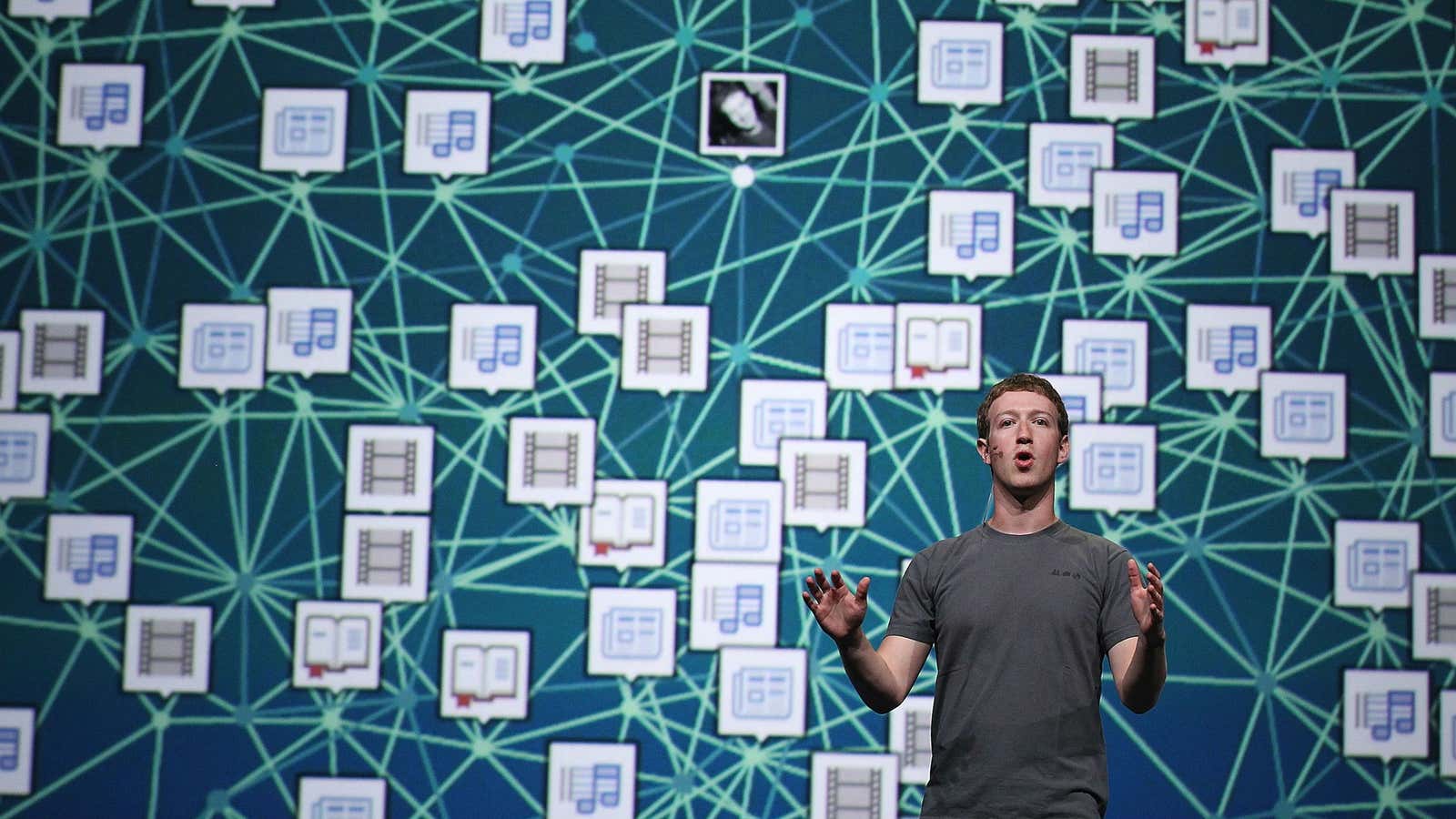Facebook has a new purpose in life. ”Our new mission is to bring the world closer together,” Mark Zuckerberg told CNN Tech today (June 22) in his first in-depth television interview since 2012.
The social network, under siege for the spread of inaccurate news and conspiracy theories on Facebook during the 2016 US election, has been seeking to craft a new image.
This latest move seems to extend a campaign by Zuckerberg to retool Facebook as a force for harmony, rather than division, in public life. It has faced increasing criticism for the level of vitriol and misinformation that its 1.9 billion users see in their news feeds, which were once populated mostly with baby photos and life events.
The CEO, not known for public outreach, announced a 50-state US tour in January to “get out and talk to more people about how they’re living, working and thinking about the future.” He is penning posts with titles like “Building Global Community.” On June 22, Facebook launched its first Communities Summit for Facebook Group administrators with panels on topics like conflict resolution.
This is the company’s first crack at revising its mission statement. The original — ”To give people the power to share and make the world more open and connected” — has been reformulated to emphasize social unity: “To give people the power to build community and bring the world closer together.”
Parsing what that means exactly remains open to interpretation. Zuckerberg’s interview implies that Facebook must be more “proactive” at healing the divides in society because merely “connecting” is no longer enough. “We’re definitely not done with that [first] mission yet, but we have a responsibility to do more in the world,” he said.
In an apparent nod to the increasingly angry, divisive reality of social media, Zuckerberg added that in addition to promoting a diversity of opinion, “you also need to do this work of building common ground so that way we can all move forward together.”
But this shift from a “more open and connected” world to one bringing the world closer together also implies a looser interpretation of Facebook’s commitment to free speech. That may pave the way for rapprochement with China, where it is now blocked. The social media giant has been struggling, and failing, to enter China for years. In 2015, the Chinese government offered a temporary license to operate, reports the Wall Street Journal, that was so restrictive Facebook never set up shop. Since then, the company has made little progress accessing the country’s 700 million internet users.
That reportedly prompted Facebook to explore potential restrictions of its own making. The New York Times said last November (paywall) that the social network has tested software to suppress news-feed content in specific regions of China. The feature appears to be a requirement for Facebook’s entrance into China. Rather than censor posts itself, Facebook could let third parties (most likely Chinese companies) monitor and restrict access to certain stories. Although the feature has not been rolled out, it’s possible this would be the foundation for a global expansion into countries that severely limit freedom of expression.
Will Facebook’s new mission statement smooth the way for such moves, under the rubric of community? Maybe. For now, Zuckerberg argues that Facebook’s focus on using its platforms to catalyze real-world communities will be a win for everyone. “Our view is if we can help build those tools, the power to build more of those communities, the world is going to be a much better place,” he said.
We’ll see if that’s true beyond the US border.
